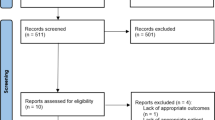Abstract
Background
Primary sclerosing cholangitis (PSC) is a chronic cholestatic disease. Interventional ERCP improves survival in PSC patients.
Aims
To describe the frequency and risk factors for post-ERCP adverse events in patients with PSC via multivariate analysis.
Methods
Retrospective cohort study included patients with a diagnosis of PSC who underwent ERCP at academic institutions between February 2000 and October 2009. Demographis, co-morbid conditions, antibiotic use, cannulation method, ERCP maneuvers and 30-day post-ERCP adverse events were collected. Multivariate analysis was performed using logistic regression.
Results
A total of 185 procedures were performed on 75 PSC patients (58 M,17 F). Seven endoscopists performed ERCPs. Comorbidies included ulcerative colitis (44%, n = 33), Crohn’s disease (12%, n = 9 patients), Cirrhosis (8%, n = 6 patients) and autoimmune hepatitis (2.7%, n = 2). Cannulation was achieved using dye-free guidewire cannulation techniques in 139/185 procedures (76%) and with contrast-based techniques in 46/185 procedures (24%). Thirty-day post-ERCP adverse events included post-ERCP pancreatitis (5%, n = 9, cholangitis (1%, n = 2), acute cholecystitis (0.5%, n = 1), stent occlusion (0.5%, n = 1), stent migration (0.5%, n = 1), and bile leak (0.5%, n = 1). In the multivariate analysis, associations with specific endoscopists who performed the procedure (P = 0.01), biliary dilation (P = 0.02), sphincterotomy (P = 0.03), presence of cirrhosis (P = 0.05), Crohn’s disease (P < 0.001), and autoimmune hepatitis (P < 0.001) significantly predicted a complication following ERCP. Gender, stenting during procedure, presence of a dominant stricture, and cholangitis were not predictive for post-ERCP adverse events.
Conclusions
Factors predicting 30-day post-ERCP adverse events included certain co-morbid conditions, the endoscopist ERCP volume, maneuvers during ERCP including dilation and sphincterotomy. Stenting was not associated with adverse events.
Similar content being viewed by others
References
Enns R, Eloubeidi MA, Mergener K, Jowell PS, Branch MS, Baillie J. Predictors of successful clinical and laboratory outcomes in patients with primary sclerosing cholangitis undergoing endoscopic retrograde cholangiopancreatography. Can J Gastroenterol. 2003;17:243–248.
Bangarulingam SY, Gossard AA, Petersen BT, Ott BJ, Lindor KD. Adverse events of endoscopic retrograde cholangiopancreatography in primary sclerosing cholangitis. Am J Gastroenterol. 2009;104:855–860.
Gluck M, Cantone NR, Brandabur JJ, Patterson DJ, Bredfeldt JE, Kozarek RA. A twenty-year experience with endoscopic therapy for symptomatic primary sclerosing cholangitis. J Clin Gastroenterol. 2008;42:1032–1039.
Baluyut AR, Sherman S, Lehman GA, Hoen H, Chalasani N. Impact of endoscopic therapy on the survival of patients with primary sclerosing cholangitis. Gastrointest Endosc. 2001;53:308–312.
Bilbao MK, Dotter CT, Lee TG, Katon RM. Adverse events of endoscopic retrograde cholangiopancreatography (ERCP). A study of 10, 000 cases. Gastroenterology. 1976;70:314–320.
Silviera ML, Seamon MJ, Porshinsky B, et al. Adverse events related to endoscopic retrograde cholangiopancreatography: a comprehensive clinical review. J Gastrointes Liver Dis. 2009;18:73–82.
Vandervoort J, Soetikno RM, Tham TC, et al. Risk factors for adverse events after performance of ERCP. Gastrointest Endosc. 2002;56:652–656.
Etzel JP, Eng SC, Ko CW, et al. Adverse events after ERCP in patients with primary sclerosing cholangitis. Gastrointest Endosc. 2008;67:643–648.
van den Hazel SJ, Wolfhagen EH, van Buuren HR, van de Meeberg PC, Van Leeuwen DJ. Prospective risk assessment of endoscopic retrograde cholangiography in patients with primary sclerosing cholangitis. Dutch PSC Study Group. Endoscopy. 2000;32:779–782.
de Wit AW, van Bracht J, Rauws EA, Jones EA, Tytgat GN, Huibregtse K. Endoscopic stent therapy for dominant extrahepatic bile duct strictures in primary sclerosing cholangitis. Gastrointest Endosc. 1996;44:293–299.
Stiehl A, Rudolph G, Kloters-Plachky P, Sauer P, Walker S. Development of dominant bile duct stenoses in patients with primary sclerosing cholangitis treated with ursodeoxycholic acid: outcome after endoscopic treatment. J Hepatol. 2002;36:151–156.
Freeman ML, DiSario JA, Nelson DB, et al. Risk factors for post-ERCP pancreatitis: a prospective, multicenter study. Gastrointest Endosc. 2001;54:425–434.
Kaya M, Petersen BT, Angulo P, et al. Balloon dilation compared to stenting of dominant strictures in primary sclerosing cholangitis. Am J Gastroenterol. 2001;96:1059–1066.
Author information
Authors and Affiliations
Corresponding author
Rights and permissions
About this article
Cite this article
Alkhatib, A.A., Hilden, K. & Adler, D.G. Comorbidities, Sphincterotomy, and Balloon Dilation Predict Post-ERCP Adverse Events in PSC Patients: Operator Experience Is Protective. Dig Dis Sci 56, 3685–3688 (2011). https://doi.org/10.1007/s10620-011-1830-8
Received:
Accepted:
Published:
Issue Date:
DOI: https://doi.org/10.1007/s10620-011-1830-8




